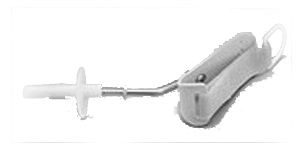Gerbisa Suppositories 5's
₹174.6*
MRP ₹194
10% off
₹164.9*
MRP ₹194
15% CB
₹29.1 cashback(15%)
Free Delivery
With Circle membership
(Inclusive of all Taxes)
This offer price is valid on orders above ₹800. Apply coupon PHARMA10/PHARMA18 (excluding restricted items)
Know Your Delivery Time
Provide Delivery Location



Available Offers

Secure Payment

India's Most Trusted Pharmacy

Genuine Products
Composition :
Manufacturer/Marketer :
Consume Type :
Return Policy :
Expires on or after :
About Gerbisa Suppositories
Gerbisa Suppositories is used to treat occasional constipation. It may also be used to empty the bowels prior to surgery or certain medical procedures. Constipation refers to infrequent bowel movements. In this condition, the stools are often dry, painful and hard to pass.
Gerbisa Suppositories contains 'Bisacodyl' that increases the activity of the intestines, which facilitates a bowel movement. Thereby, Gerbisa Suppositories helps treat constipation.
In some cases, Gerbisa Suppositories may cause side effects such as diarrhoea, abdominal pain/cramps, rectal inflammation or irritation. Most of these side effects do not require medical attention and will resolve gradually over time. However, you are advised to talk to your doctor if you experience these side effects persistently.
Do not use Gerbisa Suppositories for more than a week as it might cause dependency on Gerbisa Suppositories for bowel movement. Consult your doctor before using Gerbisa Suppositories if you are pregnant or breastfeeding. Gerbisa Suppositories should not be used in children unless prescribed by a child specialist. Avoid using other stool softeners or laxatives unless advised by the doctor.
Uses of Gerbisa Suppositories
Directions for Use
Medicinal Benefits
Gerbisa Suppositories belongs to the group of medicines called as stimulant laxatives used to treat constipation. Gerbisa Suppositories increases the intestinal movements, thereby facilitating stool passage. Gerbisa Suppositories may also be used under medical supervision to empty the bowels prior to surgery, certain medical procedures, pre-or post-operative treatments, and in conditions which require defecation to be facilitated.
How Gerbisa Suppositories Works
Storage
 16 people bought
16 people bought Side Effects of Gerbisa Suppositories
- Diarrhoea
- Abdominal pain/cramps
- Rectal inflammation or irritation
What if I have taken an overdose of Gerbisa Suppositories
Drug Warnings
Do not use Gerbisa Suppositories if you are allergic to any of its contents, if you have an intestinal obstruction, severe dehydration, acute abdominal conditions requiring surgery or in conditions where the diagnosis is uncertain. Inform your doctor if you have a bowel obstruction, inflammatory bowel disease, anal fissures, piles, or rectal bleeding. Consult your doctor if you are pregnant or breastfeeding. Gerbisa Suppositories should be used in children only if advised by the doctor. Notify your doctor if you have nausea, vomiting, stomach pain, or a sudden change in bowel movement lasting for more than 2 weeks.
Drug-Drug Interactions
Drug-Drug Interactions
Login/Sign Up
Co-administration of Gerbisa Suppositories 5's with Sodium sulfate may raise the risk of ischemic colitis (an inflammatory condition caused by reduced blood flow to the colon due to narrowed or blocked blood vessels) or ulcers.
How to manage the interaction:
Although there is an interaction, Gerbisa Suppositories 5's can be taken with Sodium sulfate only if prescribed by the doctor. Inform the doctor if you experience any unusual symptoms. Do not stop taking medications without a doctor's advice.
Co-administration of Gerbisa Suppositories 5's and Azithromycin together can increase the chance of a serious abnormal heart rhythm.
How to manage the interaction:
Although there is an interaction, Gerbisa Suppositories 5's can be taken with Azithromycin if prescribed by the doctor. Consult the doctor if you develop sudden dizziness, lightheadedness, fainting, breathing difficulty, or heart palpitations, weakness, tiredness, drowsiness, confusion, tingling, numbness, muscle pain, cramps, nausea, or vomiting. Do not discontinue the medications without consulting a doctor.
Drug-Food Interactions
Drug-Food Interactions
Login/Sign Up
Diet & Lifestyle Advise
- Try maintaining a balanced diet which includes fresh fruits and vegetables.
- Stay hydrated, drink enough water and fluids.
- Exercise regularly and stay fit.
- Get enough sleep.
- Try to make time to empty your bowels whenever your body tells you to.
- Eat food rich in fibre such as whole-wheat bread, oatmeal, flax seed, nuts, beans, lentils, fruits (berries, apples, oranges, bananas, pears, figs) and vegetables (broccoli, spinach, sweet potatoes, avocados).
Habit Forming
Therapeutic Class
Gerbisa Suppositories Substitute

Dulcoflex 10 mg Adults Suppositories 5's
₹38.00per tabletJulax 10 mg Tablet 10's
₹5.76per tabletDulcolax Suppository 10 mg Adult 5's
₹7.29per tabletBiscor 10 mg Rectal Suppositories 5's
₹33.04per tabletConlax 10Mg Suppositores
₹14.40per tablet
Product Substitutes
Alcohol
Caution
It is not known if alcohol affects Gerbisa Suppositories. Please consult a doctor if you have any concerns.
Pregnancy
Caution
Avoid using Gerbisa Suppositories in the first 3months of pregnancy. Excessive or frequent use of Gerbisa Suppositories during the remaining period of pregnancy is not recommended unless advised by the doctor.
Breast Feeding
Caution
Please consult your doctor before using Gerbisa Suppositories if you are breastfeeding; your doctor will prescribe if the benefits outweigh the risks.
Driving
Caution
Gerbisa Suppositories may cause dizziness and abdominal spasms. Therefore, you are advised to drive only if you are alert.
Liver
Caution
Please consult your doctor if you have liver impairment or any concerns regarding this.
Kidney
Caution
Please consult your doctor if you have kidney impairment or any concerns regarding this.
Children
Caution
Gerbisa Suppositories is not recommended for children below 10 years. Gerbisa Suppositories should be used in children only if prescribed by a doctor.
FAQs
Country of origin
Manufacturer/Marketer address
Disclaimer
Author Details
We provide you with authentic, trustworthy and relevant information
Reference
- https://www.nps.org.au/assets/medicines/0e10d0bc-c7ed-44c8-8bb0-a53300ff1e07.pdf
- https://products.sanofi.ca/en/dulcolax.pdf
- https://dailymed.nlm.nih.gov/dailymed/drugInfo.cfm?setid=5fc2d299-d699-4176-84f1-02fdaac76df8
- https://www.drugs.com/cdi/bisacodyl-suppositories.html
- https://www.webmd.com/drugs/2/drug-8621-7109/bisacodyl-rectal/bisacodyl-suppository-rectal/details
- https://www.medsafe.govt.nz/consumers/cmi/d/dulcolax.pdf
- https://medlineplus.gov/druginfo/meds/a611051.html
















